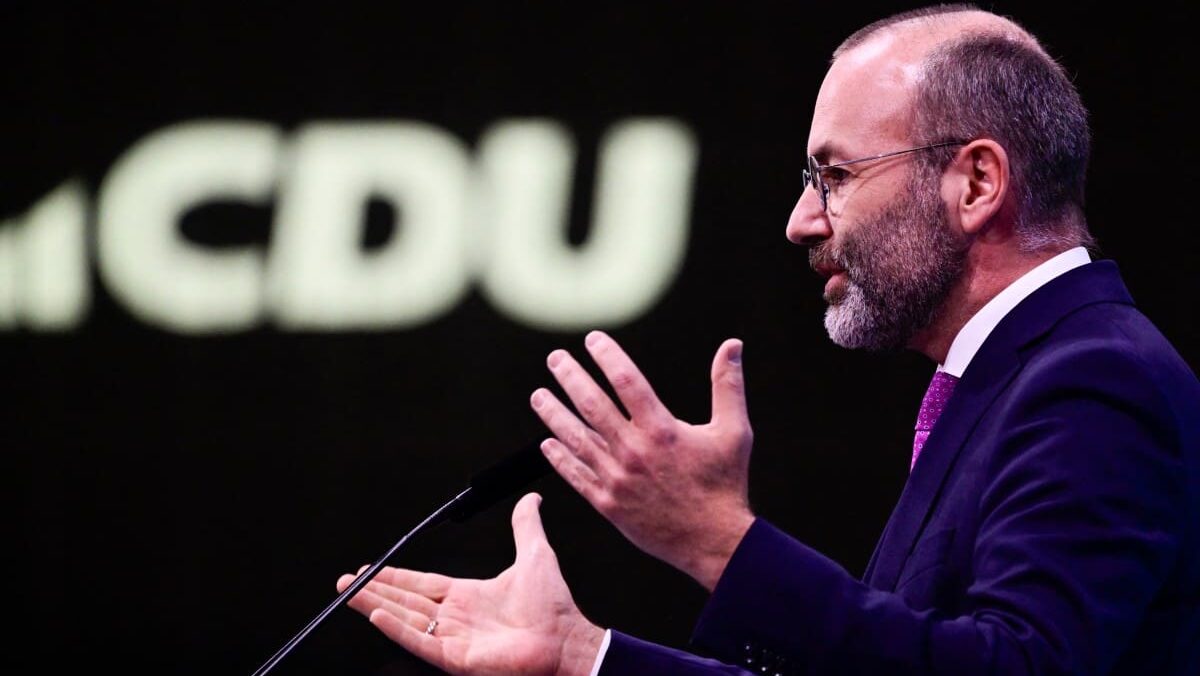
The president of the center-right European People’s Party (EPP) Manfred Weber
Photo: JOHN MACDOUGALL / AFP
The leader of the centre-right-liberal European People’s Party (EPP), Manfred Weber, said he would welcome cooperation with the rising star of the Hungarian opposition, Péter Magyar. “Our doors are open,” Weber told Politico, saying he’s “happy” about Magyar’s interest.
Péter Magyar and his Respect and Freedom party (Tisza) burst into Hungarian politics within a matter of months, attracting large crowds at its rallies. The party has hacked off a large chunk of the opposition’s support: it is projected to finish second in the European elections on June 9th and could get six or seven of the 21 parliamentary seats allocated to Hungary. The ruling conservative party Fidesz will remain the strongest force with 10-11 seats.
Magyar said recently he would like his party to become a member of the EPP, but his words seemed to suggest the move would be made for political reasons, not ideological ones:
We want to become members because they will be the biggest group [in the European Parliament], and it has been the biggest group so far. This is the group, the party, with which our MEPs would have the best chance of gaining important positions in the European Parliament and, God forbid, even in other institutions.
The 43-year-old Péter Magyar is the ex-husband of former Fidesz Justice Minister Judit Varga. He held various positions in Fidesz-era state companies and ministries but made a name for himself earlier this year when he started criticising and accusing the government of corruption in various Facebook posts and interviews. As Zoltán Kiszelly, director of the Centre for Political Analysis at the conservative Századvég think tank recently told The European Conservative: “People are unhappy with the opposition”, and now they’ve “fallen in love with something new.”
Magyar has positioned himself as a centrist, attempting to differentiate himself from both the right and left sides of the political spectrum. However, his policies are still shrouded in mystery: he has voiced opinions similar to those of both the government and the left-wing opposition. Meanwhile, he has surrounded himself with figures from previous leftist governments, and it is still unclear where he gets his financing from, with pro-government media uncovering ties to Soros’s Open Society Foundations, Facebook, and a company linked to former socialist Prime Minister Gordon Bajnai.
He is also a morally dubious choice after allegations of mental and physical abuse of his former wife, including recording private conversations with her in order to later blackmail her with them. Judit Varga gave a lengthy interview at the end of March in which she talked about abuse she said she suffered from Péter Magyar during their marriage.
Regarding Ukraine, Magyar has made comments that deviate from the mainstream EU opinion, stating that the United States provoked Russia into invading Ukraine by placing its missiles in Ukraine, and that Russia had attacked Ukraine because the latter aimed to liquidate the Russian-speaking minority. This narrative is not acceptable to Manfred Weber, who recently said in an interview that he would not cooperate with parties that are not “pro-Ukraine.” This means Magyar would have to alter his rhetoric regarding this issue if he insists on joining the EPP, writes Hungarian conservative daily Magyar Nemzet. Nevertheless, Weber told Politico he would be “very glad” to collaborate with Magyar.
Meanwhile, Fidesz, which was once a member of the European People’s Party but left in 2021 after the EPP’s shift to the left, could be on course to join the European Conservatives and Reformists grouping after the European elections.
